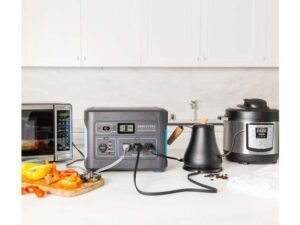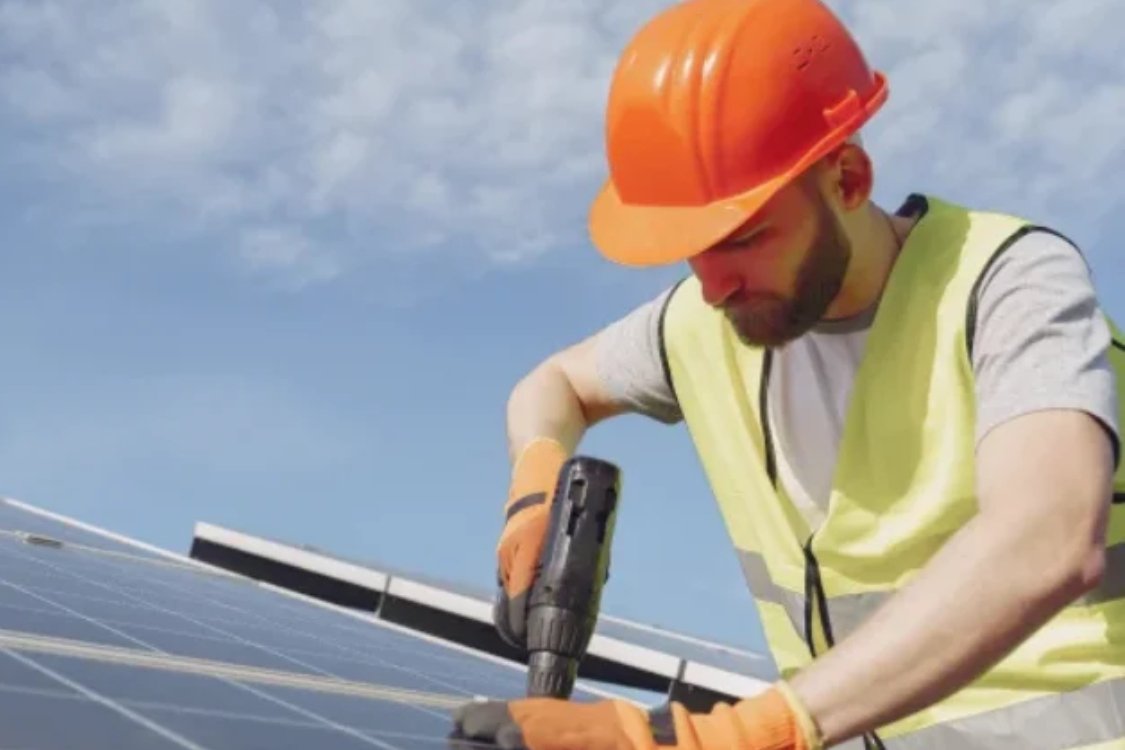Residential Solar PV Systems:
The Future of Sustainable Energy In recent years, there has been an increasing concern about the environmental effects of traditional energy sources, prompting a transition towards more sustainable and renewable energy sources. Solar energy is one such source, which may be harvested using residential solar PV systems.
These systems are gaining popularity among homeowners, not just for their environmental benefits but also because of the achievable economic savings. In this blog article, we will look at household solar PV systems, discuss their merits, and show off successful installations in tiny homes. What are residential solar photovoltaic systems?
Domestic solar PV systems comprise photovoltaic (PV) solar panels put on a rooftop or in a garden to absorb electricity from the sun and convert it into electricity. The panels are made up of smaller units called solar cells, which are typically made from silicon. When sunlight hits these cells, it causes a flow of electrons, which creates electricity. The electricity generated can then be used to power household appliances, lighting, and other electrical devices.
Benefits of Domestic Solar PV Systems Environmental Impact First and foremost, domestic solar PV systems have a positive impact on the environment. Unlike traditional energy sources, such as coal and natural gas, solar energy does not produce any harmful emissions that contribute to air pollution and climate change.
By using solar energy, homeowners can reduce their carbon footprint and play a role in protecting the planet for future generations.
Reduced energy bills Another significant benefit of a domestic solar PV system is the potential cost savings on energy bills.
By generating their own electricity, homeowners can reduce their reliance on the grid and save money on their electricity bills.
While the initial cost of installing a solar PV system may seem intimidating, the long-term benefits far outweigh the initial investment.
In fact, studies have shown that homeowners can save thousands of pounds over the lifetime of a solar PV system.
Independent Source of Energy Homes powered by solar PV systems have the added benefit of being independent of the energy grid.



This is especially useful in cases of power outages or emergencies where homeowners can still have access to electricity. Moreover, with the installation of battery storage technology, excess energy generated by the system is stored for later use. This means homeowners can still benefit from solar energy even when the sun isn’t shining.
Real-Life Examples Small home installations of domestic solar PV systems are becoming increasingly common, showcasing the viability and benefits of this renewable energy source. Let’s take a look at a few real-life examples of successful installations.
- The King family’s home in Manchester is a small detached house that had a 3kW solar PV system installed on the roof. The system generates approximately 2,700 kWh of electricity per year, meeting roughly 60% of their household energy needs. Their energy bills have been reduced significantly, and they have also received income through the Feed-in Tariff scheme for the excess energy they generate.
- The Hooper family in Cheshire have installed a 3.96 kW solar PV system on their roof, which meets roughly 40% of their annual energy needs. The installation was completed in just two days, and they have seen a significant reduction in their energy bills, saving them an average of £500 per year.
- The Hills family in Cornwall had a 12-panel system installed on their small bungalow, generating 2,000 kWh of electricity per year. This equates to approximately 50% of their energy consumption, resulting in substantial financial savings as well as a reduced carbon footprint.
The success of these installations not only highlights the significant cost savings and energy efficiency achievable through domestic solar PV systems but also demonstrates their widespread application in small homes.
In conclusion, domestic solar PV systems are a viable and effective means of harnessing renewable energy for small homes. With their environmental benefits, cost savings on energy bills, and potential for independence from the energy grid, it’s no wonder that more and more homeowners are opting for this sustainable energy source.
So, if you’re looking to reduce your carbon footprint and save on your energy bills, a domestic solar PV system may be the way to go.
References
5 Benefits of Residential Solar. (n.d.). Energy.gov. Retrieved February 20, 2024, from https://www.energy.gov/energysaver/articles/5-benefits-residential-solar
Benefits of Residential Solar Electricity. (n.d.). Energy.gov. Retrieved February 20, 2024, from https://www.energy.gov/energysaver/benefits-residential-solar-electricity
What Are the Benefits of a Home Solar System? (n.d.). Retrieved February 20, 2024, from https://enphase.com/solar-articles/residential-solar-benefits


